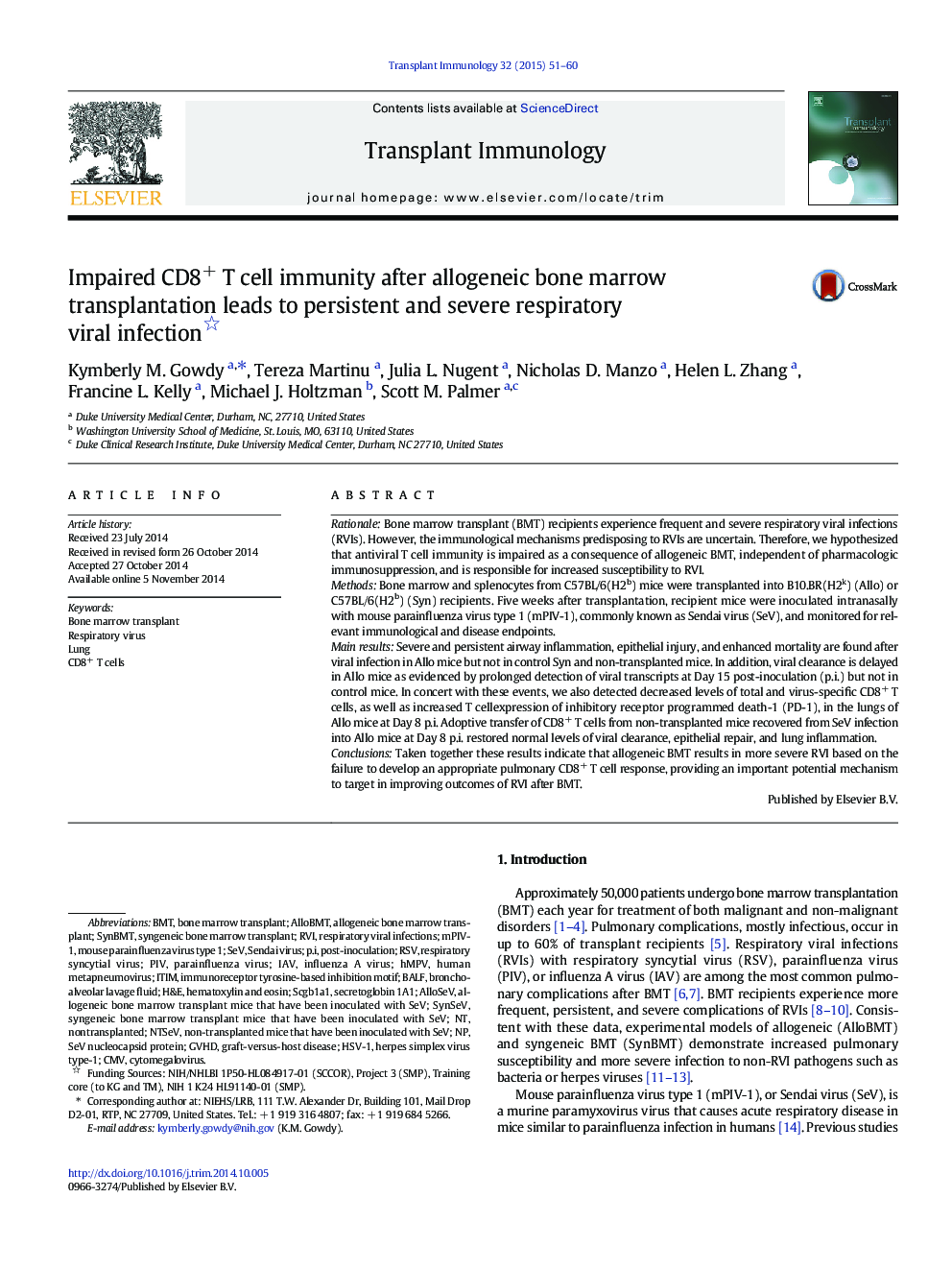| Article ID | Journal | Published Year | Pages | File Type |
|---|---|---|---|---|
| 3392042 | Transplant Immunology | 2015 | 10 Pages |
•Severity of respiratory viral infection is increased in a mouse model of allogeneic BMT.•Allogeneic BMT mice have inadequate CD8+T cell responses and deficiencies in viral clearance and epithelial repair.•The CD8+ T cell impairment correlates with increased markers of T cell exhaustion in CD8+ T cells.•Adoptive transfer of non-exhausted CD8+ T cells improves antiviral immunity and viral clearance in allogeneic BMT mice.
RationaleBone marrow transplant (BMT) recipients experience frequent and severe respiratory viral infections (RVIs). However, the immunological mechanisms predisposing to RVIs are uncertain. Therefore, we hypothesized that antiviral T cell immunity is impaired as a consequence of allogeneic BMT, independent of pharmacologic immunosuppression, and is responsible for increased susceptibility to RVI.MethodsBone marrow and splenocytes from C57BL/6(H2b) mice were transplanted into B10.BR(H2k) (Allo) or C57BL/6(H2b) (Syn) recipients. Five weeks after transplantation, recipient mice were inoculated intranasally with mouse parainfluenza virus type 1 (mPIV-1), commonly known as Sendai virus (SeV), and monitored for relevant immunological and disease endpoints.Main resultsSevere and persistent airway inflammation, epithelial injury, and enhanced mortality are found after viral infection in Allo mice but not in control Syn and non-transplanted mice. In addition, viral clearance is delayed in Allo mice as evidenced by prolonged detection of viral transcripts at Day 15 post-inoculation (p.i.) but not in control mice. In concert with these events, we also detected decreased levels of total and virus-specific CD8+ T cells, as well as increased T cellexpression of inhibitory receptor programmed death-1 (PD-1), in the lungs of Allo mice at Day 8 p.i. Adoptive transfer of CD8+ T cells from non-transplanted mice recovered from SeV infection into Allo mice at Day 8 p.i. restored normal levels of viral clearance, epithelial repair, and lung inflammation.ConclusionsTaken together these results indicate that allogeneic BMT results in more severe RVI based on the failure to develop an appropriate pulmonary CD8+ T cell response, providing an important potential mechanism to target in improving outcomes of RVI after BMT.
